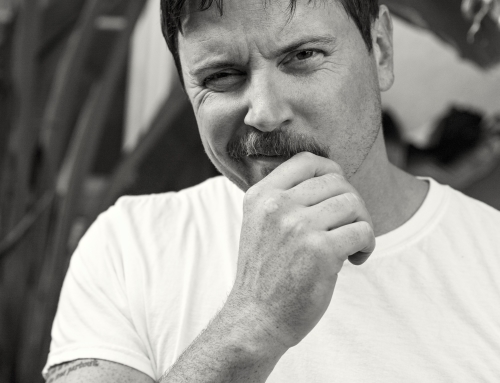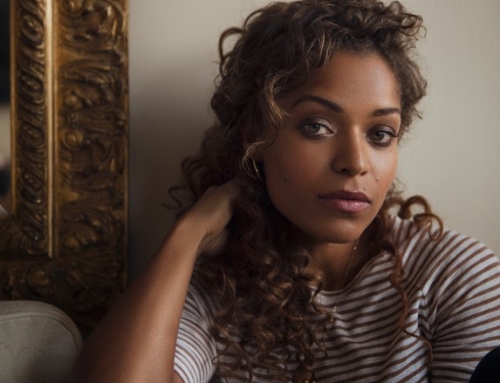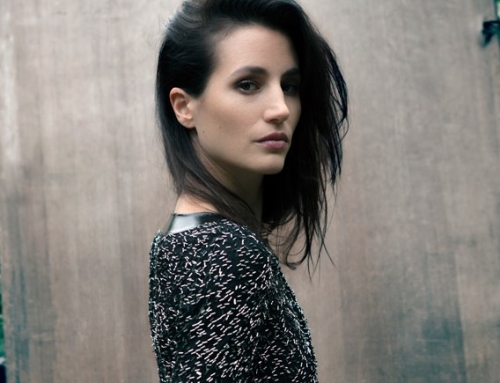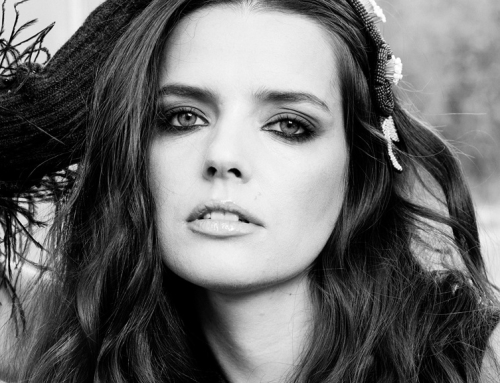If watching a nurse give you a flu shot, calls upon a wave on nausea, then Antiviral will be enough to trigger swooning.
A cautionary tale of ingenuity in the age of reckless consumerism, director Brandon Cronenberg sets his first feature film in a glossy dystopia, where habitants have loss the consciousness to realize the savage consumerism of their Brave New World.
The sci-fi horror pic showcases the talents of Canada’s bright young actors, Sarah Gadon and Caleb Landry Jones, cast opposite each other in a skin-tingling symbiotic relationship that sees Jones’s character, Syd March, drawn into the decaying sphere of film star Hannah Geist (Gadon). Chaos takes control when Syd — and employee at the Lucas Clinic, where viruses are bought from celebrities and then sold to their rabid fans — oversteps professional boundaries with Hannah, leading to a closeness that breads terror and despair.
Tensions rise to a disturbing degree to the rhythm of the pulsating vein protruding from Jones’s temple, as the narrative delves his character deeper and deeper into his culture’s sinister celebriphilia.
Having had its world premiere at this year’s Festival de Cannes, Antiviral saw its North American premiere at this year’s Toronto International Film Festival, followed shortly after by its theatre release on October 12th. Below, we catch up with director Brandon Cronenberg for a pre-festival chat about the cult of celebrity and the art of a good horror film.

When you first began production for Antiviral, did you have your eye set on Cannes?
I wasn’t really thinking about where the film would end up as I was making it. Also, I don’t think it’s reasonable to target Cannes while you’re shooting your first feature. So I wasn’t seriously considering the possibility that we would premiere there until we screened an early cut, and people started telling me it had a real shot at being accepted.
It definitely says a lot that you were selected — it’s a huge accomplishment. How was it premiering your film in the festival’s Un Certain Regard section amongst veterans like Takashi Miike and Dario Argento?
It was great. A huge honour.
During production, was there a task in the process that was a little more difficult than you expected?
I had a fairly good sense of the filmmaking process going into production, so there weren’t any huge surprises.
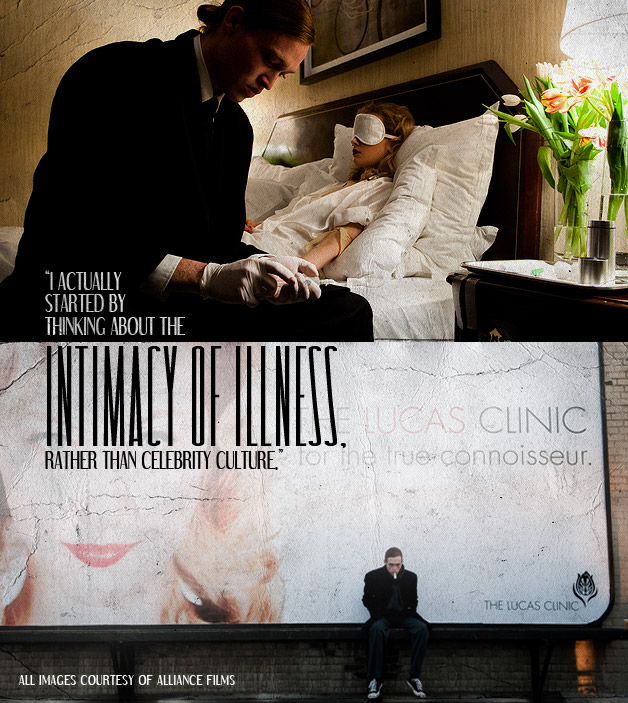
The soundtrack in your film is extremely effective; it’s impressive the way it builds mood. Do you feel like the score/music in a film acts as another character in the script?
I think there is something extremely bodily about E. C. Woodley’s score – a lot of the time it feels like an internal atmosphere that works with Syd’s breathing and vascular system. So in this case, I’d say the music is more an extension of the protagonist than its own character, which I think can be an effective approach when a film has a very subjective narrative.
The idea of harvesting live viruses from sick celebrities, and then selling them to fans is a dark take on today’s culture of celebrity obsession. Was it eerie news bits likes the auctioning of Michael Jackson’s deathbed or even further back, Scarlett Johansson’s used tissue, that inspired the film’s storyline?
I actually started by thinking about the intimacy of illness, rather than celebrity culture. I was in the middle of a bad fever, and was obsessing over the physicality of illness – how I had something in my body and inside my cells that came from someone else’s body, and how there was something strangely intimate about that connection. Afterwards, I started thinking about what kind of character might be able to see disease that way, and it developed into an interesting metaphor and platform for discussing celebrity obsession. So, I definitely considered a number of stories like the ones you mentioned, but only after I started looking into the state of celebrity culture in more detail (which is really only slightly less extreme than what’s depicted in the film).
It’s scary to think that! Do you feel like having grown up closer to Hollywood than most, you had a different vantage point on celebritydom when writing this script?
I definitely think having some exposure to both sides of celebrity culture helped give me some perspective for the script. There is an enormous disconnect between celebrities as they exist as characters in the media, celebrities as social constructs, and the actual people those characters are based on. Which seems obvious, but when you’re familiar with someone who has some degree of fame, the extent to which you see them become fictionalized [is] pretty shocking.
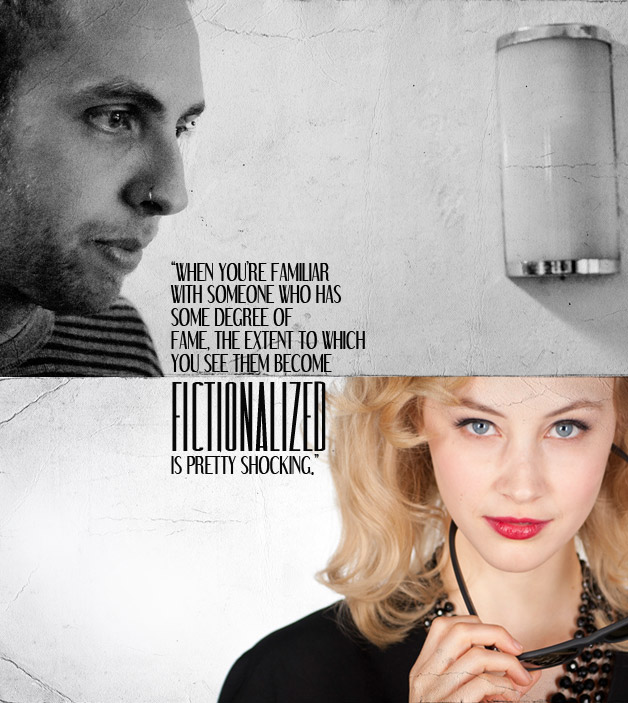
Looking at contemporary culture, what would you pinpoint as representing the ultimate display of celebrity obsession?
Hard to say. I know that’s not a real answer, but I’m running out of time, and it’s something I’d have to think about for a while.
Let’s talk about your cast then, Caleb Landry Jones and Sarah Gadon are cast perfectly; each one really inhabits their character. What about each actor convinced you they were right for the role?
In the case of Sarah, we needed someone who was both believable as the biggest star in the world, and also a good enough actor to be completely human in the moments when we meet her character in the flesh. Sarah has a certain screen quality that allows you to completely buy that people would be obsessed with her, but she’s also incredibly talented, so she could carry the weight of both sides of the role.
And Caleb?
Caleb is both an amazing actor, and someone who remains fascinating to watch no matter how long you look at him, which was very important to us given how much of the film he’s in. It was obvious as soon as we started looking at his work that there was something extremely exciting about him, and that he would be able maintain the intensity of Syd, while keep him nuanced and interesting.

When I interviewed Sarah Gadon, she said that she admired the fact that you chose her for the role, despite her being in your father’s 2 most recent films, knowing that this would only further push comparisons to your father. She credited your integrity. Do you give much thought to your work being compared to that of your father’s, or is that something you do your best to avoid as a filmmaker?
I knew when I decided to work as a filmmaker that I would be compared to my father. I was already being compared to him before I got into film. So early on, I decided to not worry about his career when thinking about my own work. I’m really just doing what’s interesting to me, and am happy to leave the issue of familial comparisons to people who actually care about that sort of thing.
Your film’s theatre release is quickly approaching, how do you predict it will be received by audiences outside of the festival circuit?
It’s hard to predict what will happen when the film is released, but it’s been getting a good enough reaction from a large enough number of people that I have to assume there’s some kind of audience for it.








